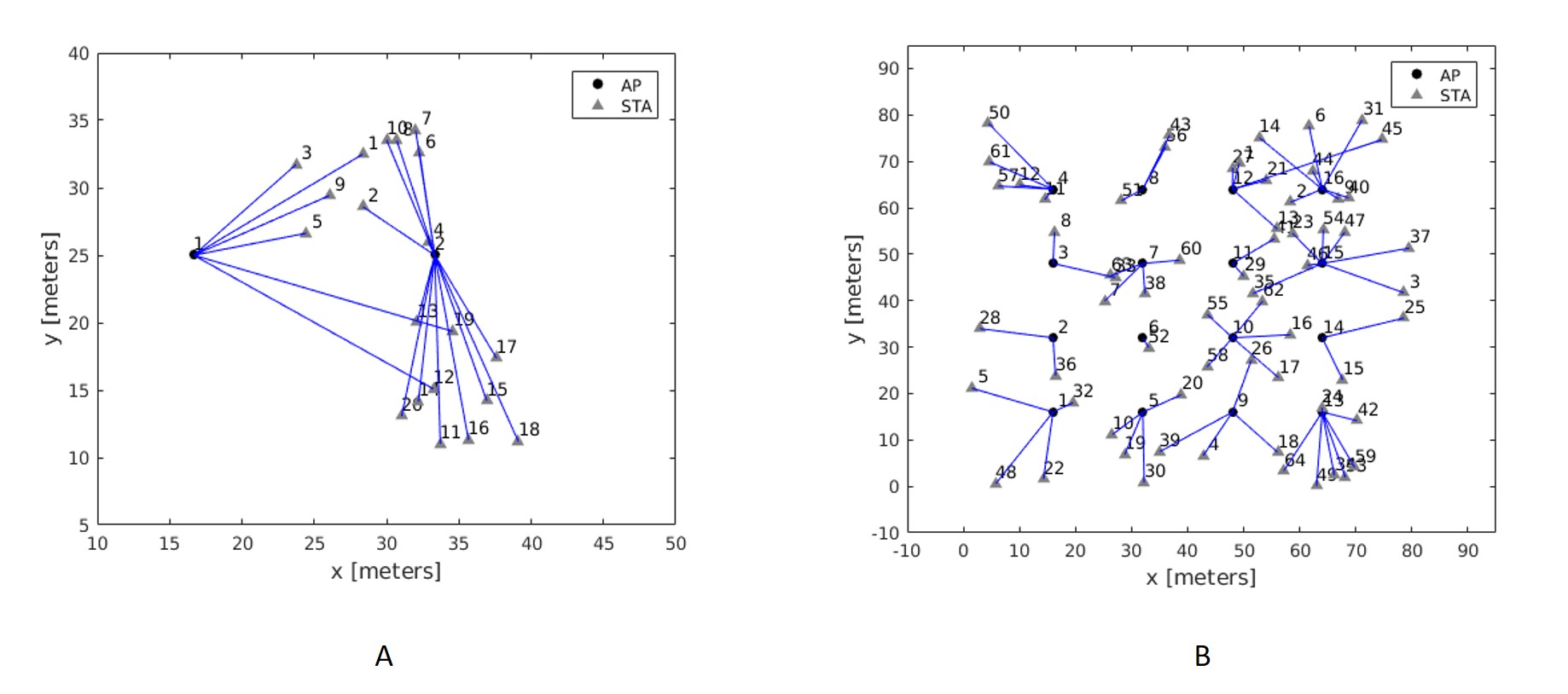A proposal that improves device connectivity to wireless networks
Fruit of the UPF end-of-degree project in Telematics Engineering by Marc Carrascosa, under the supervision of Boris Bellalta, coordinator of the Wireless Networking Research Group, accepted as a communication at the IEEE Symposium on Computers and Communications to be held in Barcelona from 30 June to 3 July.

In WiFi networks, a station (STA) is a device that has the ability to use the 802.11 protocol and can be fixed, mobile or portable. For example, a laptop, a desktop computer, a tablet or a phone can be considered stations. Generally, in wireless networking terminology, a station, a wireless client and a node are often used interchangeably, as there is no strict distinction between these terms.
Due to the high density of existing WiFi networks, stations have different access points (AP) available to them. Access points act as intermediaries between a station and an Internet or local communications network. Usually, each station is connected to the access point that has the strongest signal, which ends up saturating some points to the detriment of other points that become underutilized.
A study proposes overcoming this problem by presenting a dynamic mapping of stations and access points available as well as a redistribution of the stations between the access points within reach. The researchers have used reinforcement learning techniques in situations where a limited set of resources must be assigned among competing or alternative options thus maximizing the expected gain.
The study is the result of the UPF bachelor’s degree final project in Telematics Engineering by Marc Carrascosa (2018) under the supervision of Boris Bellalta, coordinator of the Wireless Networking Research Group in the Department of Information and Communication Technologies (DTIC) at UPF, which has been accepted as a communication at the IEEE Symposium on Computers and Communications, to be held in Barcelona from 30 June 30 to 3 July. Currently, Marc Carrascosa is studying the University Master’s Degree in Intelligent Interactive Systems at UPF.
“We present a strategy in which the stations independently explore the various access points within their range of coverage and select the point which best meets their needs”
As Carrascosa explains: “the optimization of access points is a particularly challenging issue because the network response to a particular station will depend on the behaviour of the other stations, which is very difficult to predict without a global view of the system”.
And he adds, “in this article, we focus on solving this problem in a decentralized manner, and we present a strategy in which the stations independently explore the various access points within their range of coverage and select the point which best meets their needs”.
“With this approach, we significantly reduce the variability of response to the network, we improve the ability of stations to find a faster solution and we achieve a more efficient use of the network resources”
To do so, the authors propose a new approach in which each station that finds a satisfactory access point remains associated to it, stopping scanning, and resuming it only in the event of several unsatisfactory association periods. “With this approach, we significantly reduce the variability of response to the network, we improve the ability of stations to find a faster solution and we achieve a more efficient use of the network resources”, the authors explain.
Reference works:
e-Repositori UPF: Carrascosa Zamacois, Marc (2018), “Improving user association in high-density WLANs using machine learning”, 25 de setembre, http://hdl.handle.net/10230/35496
Marc Carrascosa, Boris Bellalta (2019), “Decentralized AP Selection Using Multi-Armed Bandits: Opportunistic ε-Greedy with Stickiness”, Symposium on Computers and Communications, 30 juny-3 de juliol, Barcelona.




